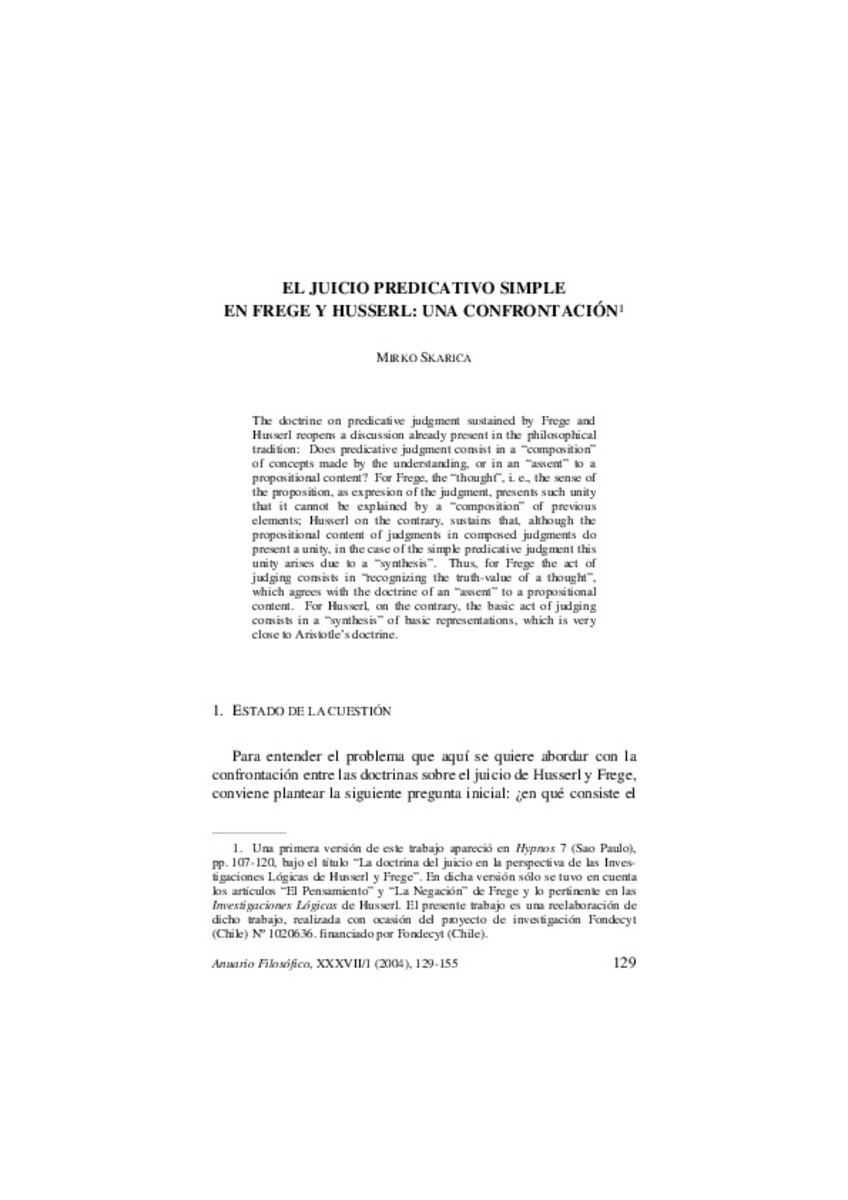Full metadata record
| DC Field | Value | Language |
|---|---|---|
| dc.creator | Skarica, M. (Mirko) | |
| dc.date.accessioned | 2009-10-14T11:01:40Z | - |
| dc.date.available | 2009-10-14T11:01:40Z | - |
| dc.date.issued | 2004 | - |
| dc.identifier.citation | Anuario Filosófico, 2004 (37), 129 - 155 | es_ES |
| dc.identifier.uri | https://hdl.handle.net/10171/4421 | - |
| dc.description.abstract | The doctrine on predicative judgment sustained by Frege and Husserl reopens a discussion already present in the philosophical tradition: Does predicative judgment consist in a “composition” of concepts made by the understanding, or in an “assent” to a propositional content? For Frege, the “thought”, i. e., the sense of the proposition, as expresion of the judgment, presents such unity that it cannot be explained by a “composition” of previous elements; Husserl on the contrary, sustains that, although the propositional content of judgments in composed judgments do present a unity, in the case of the simple predicative judgment this unity arises due to a “synthesis”. Thus, for Frege the act of judging consists in “recognizing the truth-value of a thought”, which agrees with the doctrine of an “assent” to a propositional content. For Husserl, on the contrary, the basic act of judging consists in a “synthesis” of basic representations, which is very close to Aristotle’s doctrine. | es_ES |
| dc.language.iso | spa | es_ES |
| dc.rights | info:eu-repo/semantics/openAccess | es_ES |
| dc.subject | Husserl, Edmund | es_ES |
| dc.subject | Frege, Gottlob | es_ES |
| dc.subject | juicio | es_ES |
| dc.subject | lógica | es_ES |
| dc.subject | fenomenología | es_ES |
| dc.title | El juicio predicativo simple en Frege y Husserl: Una confrontación | es_ES |
| dc.type | info:eu-repo/semantics/article | es_ES |
| dc.identifier.doi | 10.15581/009.37.29396 | es_ES |
Files in This Item:
Statistics and impact
Items in Dadun are protected by copyright, with all rights reserved, unless otherwise indicated.






